A photographer captured how unprecedented floods ravaged a World Heritage site in Côte d’Ivoire
From late September until the beginning of November, unprecedented floods swallowed the streets and homes of the Quartier France of Grand-Bassam, a UNESCO World Heritage site. The main roads that taxis have plied for decades suddenly became impassable unless by canoes. Numerous historic sites were severely damaged.
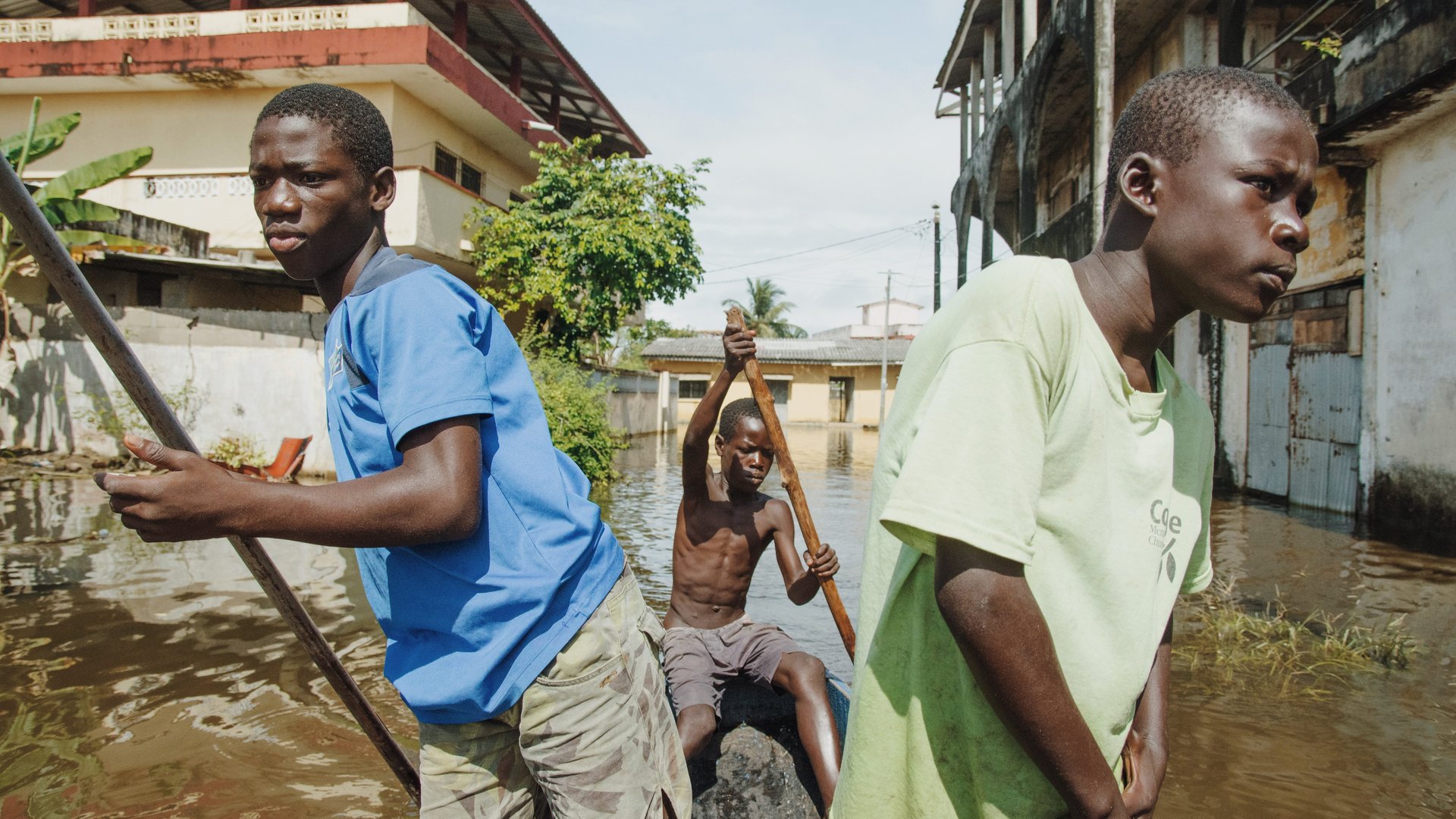

From late September until the beginning of November, unprecedented floods swallowed the streets and homes of the Quartier France of Grand-Bassam, a UNESCO World Heritage site. The main roads that taxis have plied for decades suddenly became impassable unless by canoes. Numerous historic sites were severely damaged.
Coastal erosion is a growing problem for West African nations. The region is losing more than $3.8 billion a year to coastal erosion, according to a recent World Bank study. Ivory Coast (Côte d’Ivoire) is the worst-hit country and has lost $2 billion to the rising sea levels, nearly 5% of its GDP.
Although water levels have gone back to normal in the last few days, the flooding of Grand-Bassam, a major tourist site and the country’s first colonial capital, was a major test for how Ivory Coast’s government will deal with the spreading impact of climate change. So far the outlook is not good.
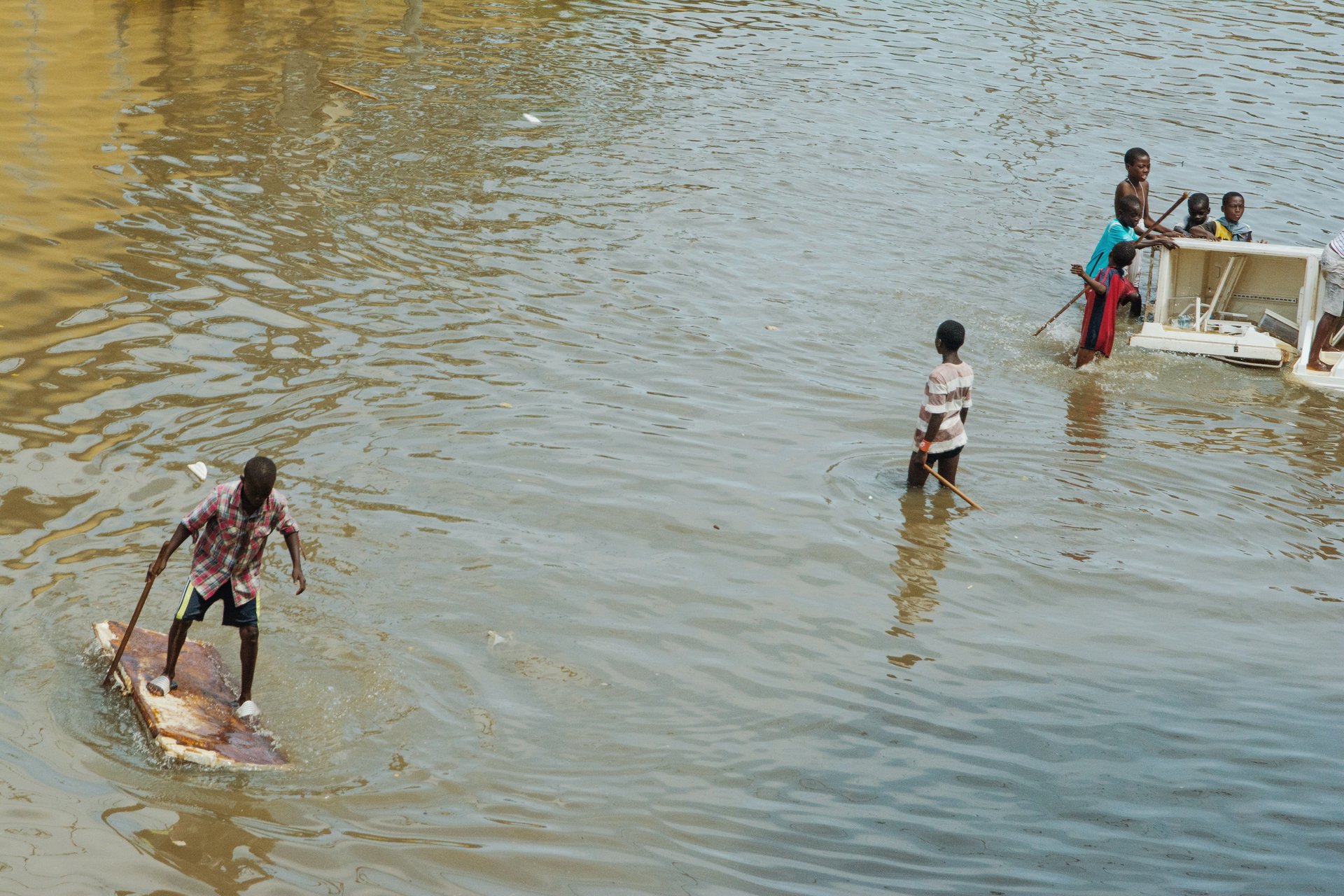
Grand-Bassam’s floods were caused by the rising water levels of the country’s largest river, the Comoé, which overwhelmed the various streams that connect the Ouladine lagoon with the Atlantic Ocean. Grand-Bassam’s mayor Jean-Louis Moulot told French radio RFI that the Ivorian government had promised to build a vital 21 billion CFA francs ($35 million) concrete canal that would evacuate water into the ocean, but work on the canal has not yet started.
This unprecedented situation for the area has had disastrous consequences for the local economy and the health of its residents. Many homes were flooded, and inside one that I photographed, the water level was approaching a mattress that had already been elevated to escape the inevitable rise of the water.
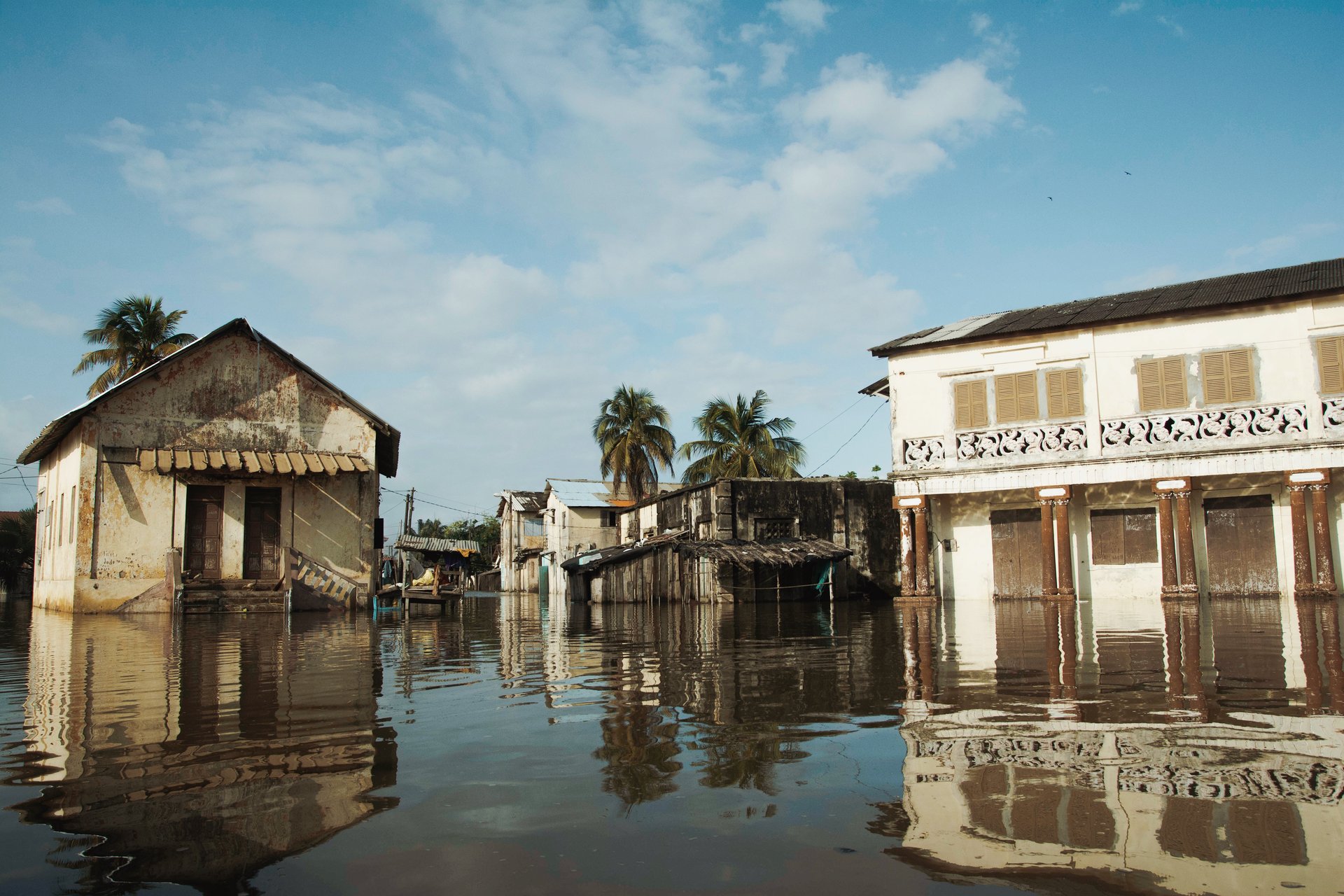
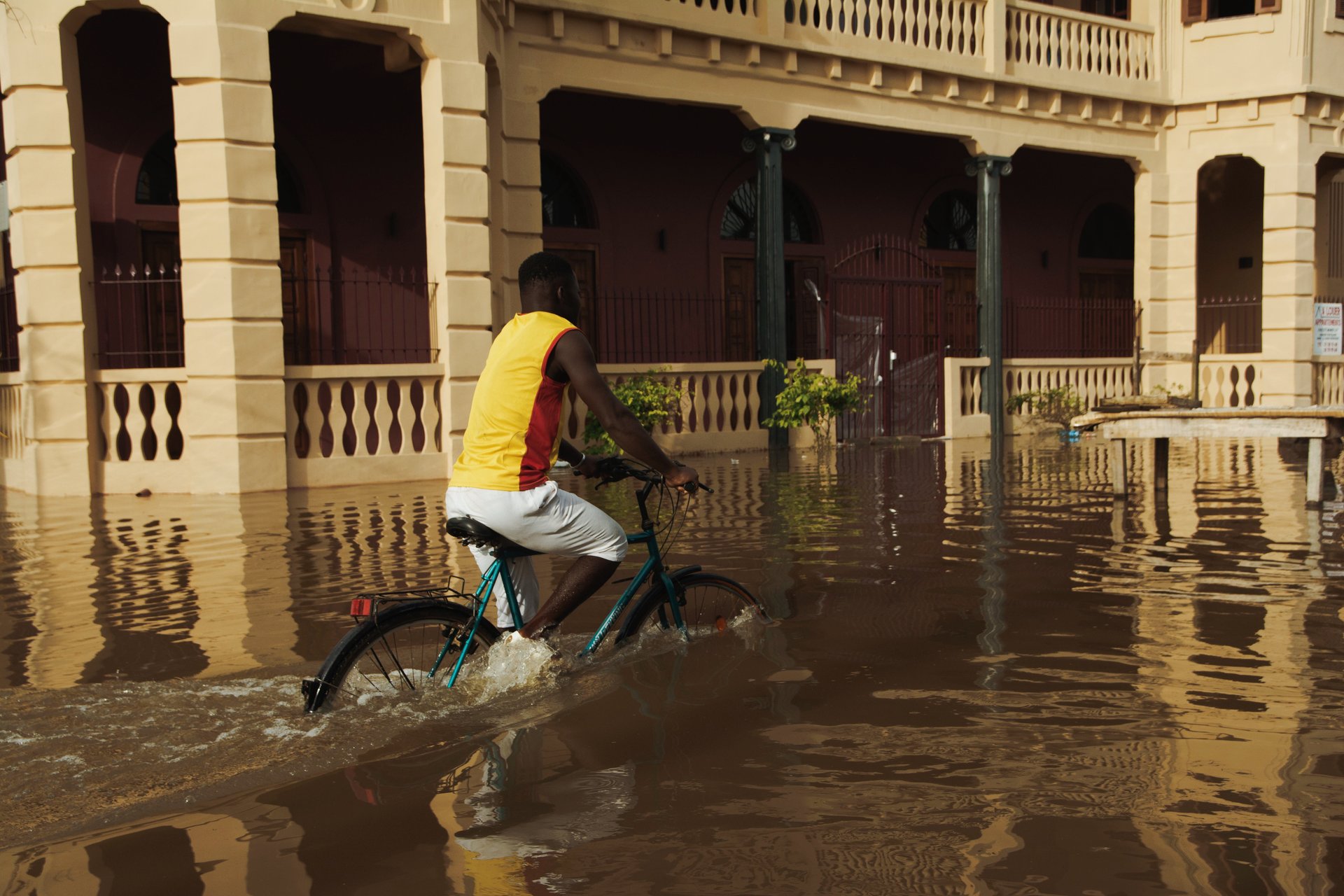
More than ever, nights in Grand-Bassam are characterized by an exponential increase of mosquitos, heightening the already prevalent risks of malaria. Mosquitos have an important history in Grand-Bassam, because as local lore tells it, it was malaria that chased out the French from the area, where they had originally established their first colonial capital.
Abissa, the most important traditional celebration of the year, has been postponed due to the floods. Electricity has been suspended to avoid any risk of electrocution in water, which is already heavily polluted by the piles of garbage that litter the city’s arteries. The situation of climate change, as exemplified by this city—one of the last cultural pillars of the country—should concern every Ivorian. Our heritage, our identity, our history, and the values we share as a nation are at stake.
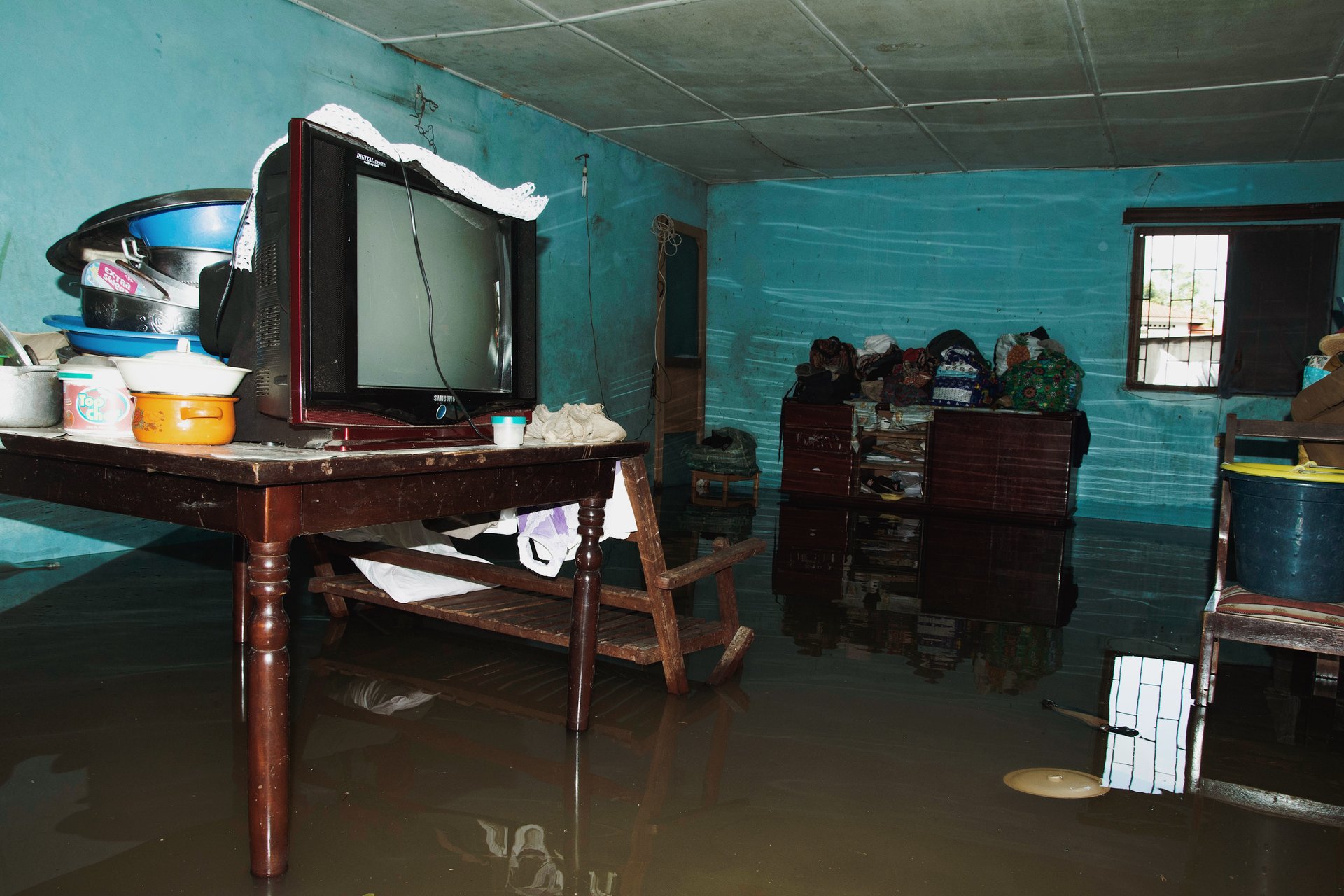
Sign up to the Quartz Africa Weekly Brief here for news and analysis on African business, tech and innovation in your inbox